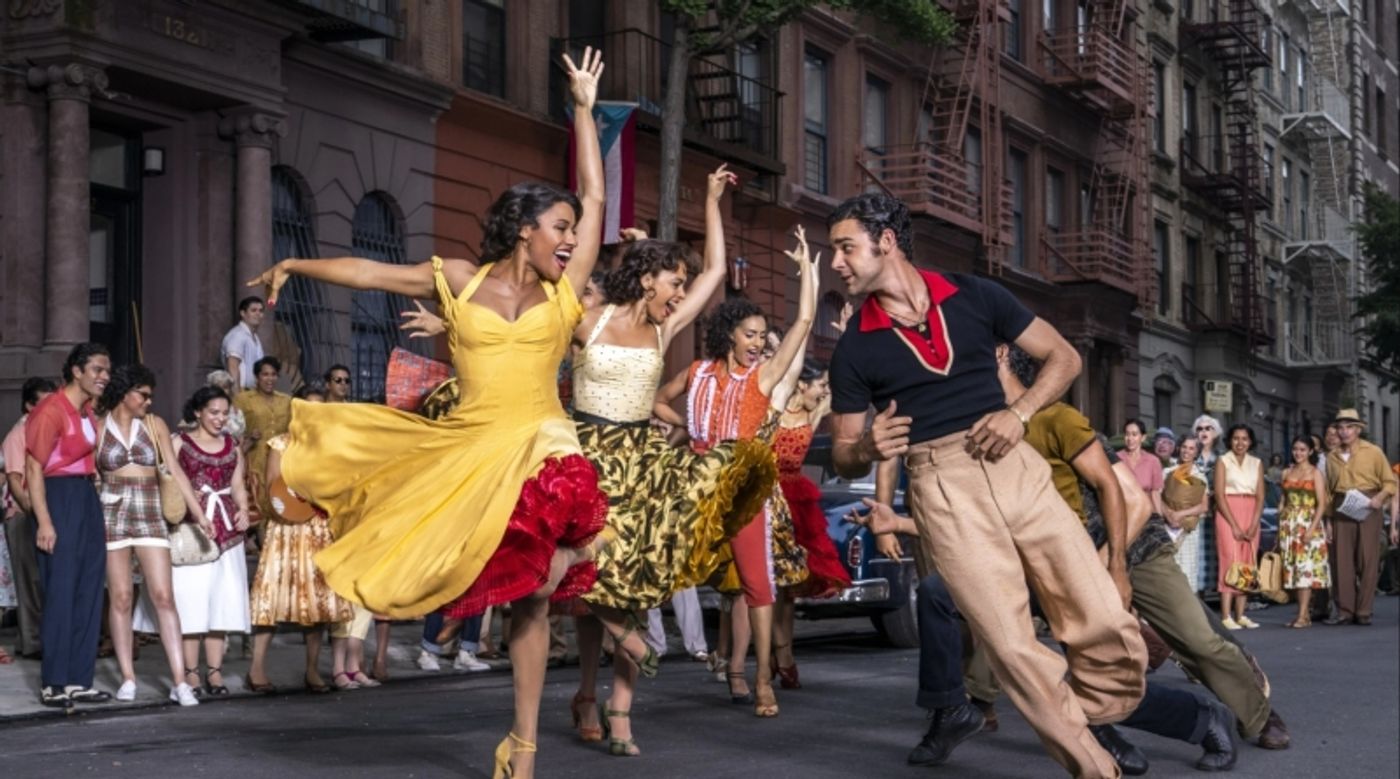'Expanded' WEST SIDE STORY in Philippine Cinemas, Feb. 16
'West Side Story' is distributed by 20th Century Studios.
 Manila, Philippines--On Valentine's week, Steven Spielberg's first full-length musical film, "West Side Story," which recently been nominated for seven Oscar Awards, including this year's "Best Picture," finally screens in Philippine cinemas starting February 16.
Manila, Philippines--On Valentine's week, Steven Spielberg's first full-length musical film, "West Side Story," which recently been nominated for seven Oscar Awards, including this year's "Best Picture," finally screens in Philippine cinemas starting February 16.
Set in the late '50s Manhattan, "West Side Story" explores San Juan Hills, where many Puerto Rican immigrants thrive. However, their close-knit community is at the brink of extinction; it is being rebuilt as an urban development: the Lincoln Center complex, a hub for the elite performing arts organizations, such as the New York Philharmonic and the Metropolitan Opera, today stands.
"West Side Story" opens with a long take, where cinematographer Janusz Kaminski's camera swoops from midtown Manhattan's skyline to the rubbles of some parts of the West Side's San Juan Hills; the area has been enclosed and declared a private property. The camera then zooms onto the architectural plans of the Lincoln Center complex, whose every nook and cranny becomes a battleground between two warring gangs, comprised of juvenile delinquents, the Jets (White Americans), and the Sharks (Puerto Ricans).
The Jets and the Sharks very well remind us of the feuding noble families of the Montagues and the Capulets in William Shakespeare's tragedy "Romeo and Juliet," which inspired the original 1957 Broadway production conceived by Jerome Robbins, with music by Leonard Bernstein, lyrics by Stephen Sondheim, and book by Arthur Laurents. In the center of the street fights between the Jets, led by Riff (Mike Faist), and the Sharks, led by Bernardo (David Alvarez), are star-crossed lovers: American Tony (Ansel Elgort) and Puerto Rican Maria (Rachel Zegler).
Spielberg and screenwriter Tony Kushner earlier revealed they had based their movie on the staged version--and they're not remaking the 1961 film, which starred Natalie Wood (Maria), Richard Beymer (Tony), and Rita Moreno (Anita). Now a 90-year-old screen legend and producer, Moreno returns in this musical's reiteration in a special role: Valentina, a confidante to Elgort's Tony, and who sings one of the show's most romantic anthems, "Somewhere"--albeit in a relatively brief, but genuinely heartfelt, manner.
What the original stage production had left out, this "West Side Story," in the time of online streaming, Hallyu, and NFTs, Spielberg and Kushner's well-written expanded backstories--infused with unsubtitled Spanish dialogues--make the characters Tony, Maria, Valentina, and Chino (Maria's Puerto Rican suitor) more real. Tony is now an ex-convict; he was in jail for about a year for attempted murder, which explains his abject disapproval of the Jets' bullying the Sharks. Maria, who is not working anymore at "sister-in-law" Anita's bridal shop, cleans an upscale mall in the evenings, which underpins the relentless class struggle between the rich and the working class.
Moreover, Puerto Rican "abuela" Valentina, who replaces the white male pharmacist Doc in the staged version, provides the proverbial motherly love that overpowers the hot-tempered gang members and consoles a distraught Anita (Ariana DeBose). A straight-up dork, Chino (Josh Andrés Rivera), whose hands wield a handgun that led to that unfortunate night for Tony and Maria, has now a well-structured story arc, whose earlier ambitions to become part of the Sharks have been short-lived.
Spielberg, a massive fan of the original Broadway production's recording since age 10, recreates the show's beloved musical numbers, originally choreographed by Jerome Robbins and enhanced for this new adaption by Justin Peck, with vigorous camera movements, yet revealing as many details and rich, nuanced facial expressions from his actors. Spielberg's kinetic camera, which also zooms into extreme close-ups in the more intimate moments, acts like a co-dancer among a sea of splendid terpsichoreans in "Dance at the Gym: Mambo" and "America," owned through and though by DeBose's Anita, or a curious co-actor onlooking Anita's hostile encounter with the Jets.
Spielberg's sincere reverence to "West Side Story" is felt from start to finish, contributing to an instead rushed ending for this film. Historically, the staged version's last few scenes have been problematic since the original Broadway production, when a sad ending was not a popular choice among American musicals. The Broadway musical and Spielberg's now acclaimed film end similarly: an abrupt silence, without much fanfare or a big finish, such as Mama Rose's in "Gypsy."
Subsequently, the audience is perplexed: are we going to stand on our feet and clap, or not?
"West Side Story" is produced by Spielberg, Kristie Macosko Krieger, and Kevin McCollum via Amblin Entertainment and TSG Entertainment and distributed by 20th Century Studios.
Buy your tickets HERE.
Photo: Disney

Videos


